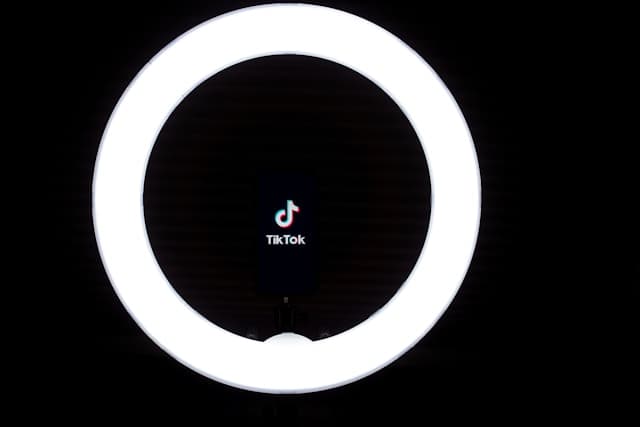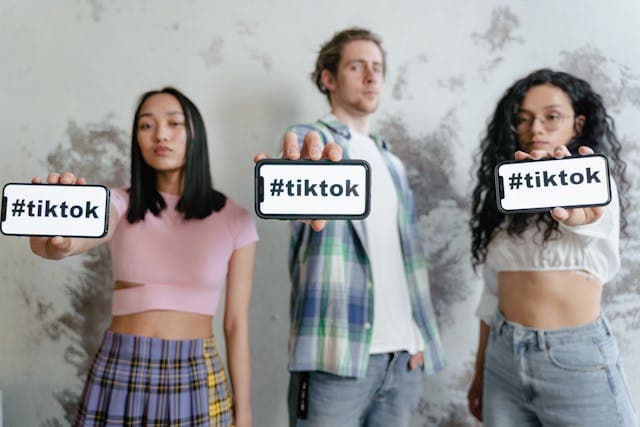How AI is Shaping the Future of Twitter Marketing

Table of Contents
The Role of AI in Twitter Marketing
Artificial intelligence (AI) has revolutionized Twitter marketing strategies, offering brands advanced tools to optimize engagement, streamline content creation, and improve advertising performance. As Twitter continues to evolve into a high-impact marketing platform, AI-driven solutions provide businesses with the ability to analyze vast amounts of data, automate tasks, and deliver personalized experiences to their audiences.
Advanced AI-Powered Analytics
One of AI's most significant contributions to Twitter marketing is its ability to process large volumes of data in real time. AI-powered analytics tools can track engagement metrics, sentiment trends, and audience behaviors, enabling brands to make data-driven decisions. By identifying patterns in user interactions, marketers can adjust their strategies for maximum reach and relevance.
- Trend Identification: AI analyzes trending topics and keywords, helping brands craft timely and relevant content that aligns with current conversations.
- Performance Insights: AI-driven analytics tools provide comprehensive reports on tweet performance, highlighting successful engagement tactics and areas for improvement.
- Predictive Analytics: AI anticipates user behavior, allowing marketers to optimize content and ad placements for better results.
AI for Content Creation and Optimization
AI-driven content generation tools are transforming the way brands create and distribute tweets. These tools use natural language processing (NLP) to generate engaging, on-brand content while ensuring consistency in tone and messaging.
- Automated Tweet Generation: AI creates compelling tweet drafts based on user preferences, industry trends, and brand voice.
- Hashtag Optimization: AI suggests the most effective hashtags to maximize visibility and engagement.
- Post Scheduling: AI determines the optimal posting times to reach audiences when they are most active.
Enhancing Customer Engagement with AI Chatbots
AI-powered chatbots are becoming a staple in Twitter marketing, enabling brands to interact with users in real-time. These bots provide instant responses, handle customer inquiries, and enhance user experiences without the need for human intervention.
- 24/7 Customer Support: AI chatbots ensure round-the-clock assistance, answering frequently asked questions and resolving issues promptly.
- Personalized Conversations: AI-driven interactions are tailored to individual users based on their past engagements and preferences.
- Lead Generation & Conversions: AI chatbots can guide users through the sales funnel by providing product recommendations and promotional offers. Explore powerful Twitter engagement tools to boost your presence on X in 2025.
AI-Optimized Advertising Strategies
AI has transformed Twitter's advertising landscape, making campaigns more effective and cost-efficient. Through machine learning algorithms, AI optimizes ad targeting, budget allocation, and campaign performance in real-time.
- Smart Audience Targeting: AI identifies the most relevant audience segments based on behavioral data and engagement history.
- Dynamic Ad Adjustments: AI continuously refines ad creatives, copy, and placement to enhance click-through rates (CTR) and conversions.
- Cost Optimization: AI ensures that ad spending is allocated efficiently, minimizing wasted resources and maximizing ROI.
Sentiment Analysis for Brand Monitoring
AI-powered sentiment analysis tools track user sentiment across Twitter, providing brands with valuable insights into how their audience perceives them. These insights enable businesses to address concerns proactively and refine their marketing approach.
- Real-Time Sentiment Tracking: AI monitors brand mentions and user sentiment to identify potential PR issues early.
- Competitor Analysis: AI compares brand sentiment with competitors, helping businesses understand their market position.
- Crisis Management: AI alerts brands to negative sentiment trends, allowing them to respond quickly and mitigate reputational risks.
Discover the best AI Twitter growth tools available in 2025.
Challenges and Ethical Considerations
While AI offers immense benefits in Twitter marketing, it also presents challenges and ethical considerations that businesses must navigate.
- Data Privacy Concerns: AI tools collect and analyze vast amounts of user data, raising concerns about data protection and compliance with regulations like GDPR.
- Algorithmic Bias: AI systems may exhibit biases based on the data they are trained on, leading to potential discrimination in ad targeting and content distribution.
- Maintaining Authenticity: Over-reliance on AI automation can reduce the human touch in brand interactions, making it crucial to balance AI-driven efficiency with genuine engagement.
Data Privacy and User Consent
The increasing scrutiny of data privacy practices has led to heightened consumer awareness and concern. AI-driven marketing strategies often require access to extensive user data to function effectively, posing a challenge in balancing personalization with consumer trust. Companies must implement consent-based marketing practices and clearly communicate data usage policies to foster transparency and compliance with regulations such as GDPR and CCPA.
Ethical Implications of Algorithmic Bias
AI systems can inadvertently perpetuate biases present in their training data, leading to unfair targeting or exclusion of certain demographic groups. To combat these biases, businesses should regularly audit their AI models and ensure the use of diverse and representative datasets in training. Ethical AI development is crucial in maintaining inclusivity and fairness in marketing strategies.
Transparency and Accountability
With growing public scrutiny, companies must provide clear explanations of their AI-driven marketing strategies and their impact on consumer engagement. Engaging with ethical considerations is not only a regulatory requirement but also vital in maintaining brand integrity and consumer loyalty.
The Need for Ethical Frameworks
To address these challenges effectively, businesses should adopt ethical frameworks that prioritize user privacy, equity, and transparency. These frameworks should guide AI implementation in marketing while ensuring accountability and responsible use of consumer data.
As AI continues to shape the future of Twitter marketing, businesses must leverage these tools responsibly, ensuring ethical practices while maximizing the benefits of automation and personalization.
Case Studies
Overview of Social Media Case Studies
Social media case studies serve as powerful examples of how brands successfully implement automation and AI-driven tools to boost engagement, streamline processes, and maximize audience reach. By analyzing these real-world applications, businesses can gain insights into effective strategies that enhance social media growth.
Personalized Recommendations by Amazon
Amazon's use of AI in digital marketing is prominently showcased through its recommendation engine, which utilizes item-to-item collaborative filtering to provide personalized product suggestions. This algorithm analyzes the purchasing history of users to identify similarities between items based on collective user interactions, significantly enhancing the customer shopping experience and driving sales growth.
Euroflorist's Data-Driven Decisions
Euroflorist implemented AI to optimize their website design and content through user interaction analysis. By employing a systematic approach that involved identifying key variables, creating multiple variants of their website, and deploying AI testing with real-time visitors, they achieved a remarkable 4.3% increase in conversion rates. This case exemplifies how data-driven decisions facilitated by AI can lead to substantial business improvements.
Heinz Ketchup's Brand Rejuvenation
Heinz sought to rejuvenate its brand image by connecting with younger, tech-savvy demographics. They utilized AI-generated campaigns that not only highlighted their flagship product in innovative ways but also encouraged user participation by sharing custom prompts for AI-generated images. This campaign reached over 1.15 billion global impressions, demonstrating the effectiveness of AI in creating engaging content, fostering community interaction, and strengthening brand loyalty.
AI-Driven Twitter Marketing Strategies
A popular clothing brand successfully leveraged AI algorithms to analyze customer preferences on Twitter. By understanding audience interests, they created highly targeted ads, resulting in significant increases in both online and in-store traffic. Additionally, a tech startup optimized tweet scheduling using AI to maximize engagement during peak user activity times, leading to improved click-through rates and brand awareness. These instances illustrate how AI can transform social media marketing by enhancing targeting and analytics, driving greater engagement and sales.
Enhancing Engagement through AI Analytics
AI tools play a vital role in enhancing the analytics of marketing campaigns on platforms like Twitter. By providing insights into engagement metrics, click-through rates, and user behavior, brands can refine their strategies and ensure more effective content delivery. This analytical approach enables brands to stay relevant and responsive to audience feedback in a fast-paced social media environment, thus promoting sustained engagement.
Data Privacy and User Consent
The increasing scrutiny of data privacy practices has led to heightened consumer awareness and concern. AI-driven marketing strategies often require access to extensive user data to function effectively, posing a challenge in balancing personalization with consumer trust. Companies must implement consent-based marketing practices and clearly communicate data usage policies to foster transparency and compliance with regulations such as GDPR and CCPA.

Ethical Implications of Algorithmic Bias
AI systems can inadvertently perpetuate biases present in their training data, leading to unfair targeting or exclusion of certain demographic groups. To combat these biases, businesses should regularly audit their AI models and ensure the use of diverse and representative datasets in training. Ethical AI development is crucial in maintaining inclusivity and fairness in marketing strategies.
Transparency and Accountability
With growing public scrutiny, companies must provide clear explanations of their AI-driven marketing strategies and their impact on consumer engagement. Engaging with ethical considerations is not only a regulatory requirement but also vital in maintaining brand integrity and consumer loyalty.
Future Trends
Enhanced Predictive Analytics
AI-driven predictive analytics will become more sophisticated, enabling marketers to make data-driven decisions with greater accuracy. Advanced AI models will forecast user behavior, optimize content strategies, and improve campaign performance, leading to higher engagement rates and ROI.
Integration of Augmented Reality (AR) and Virtual Reality (VR)
The incorporation of AR and VR in Twitter marketing is anticipated to revolutionize audience engagement. These technologies will create immersive experiences, strengthening brand-audience relationships and increasing interactivity.
AI as a Strategic Partner
By 2025, AI will transition from being a tactical tool to a strategic decision-making partner. AI systems will predict market trends, simulate campaign outcomes, and provide real-time optimization, allowing businesses to refine their marketing strategies proactively.
Automation and Personalization
AI will continue to drive automation in social media marketing, enabling businesses to optimize content, refine audience targeting, and enhance personalization. This automation will improve efficiency while maintaining relevance in marketing efforts.
Ethical Considerations and Workforce Implications
As AI adoption grows, businesses must navigate ethical concerns, workforce transitions, and the responsible use of automation. Addressing these challenges will be crucial for sustainable AI integration in marketing.
Conclusion
The integration of AI-powered copilots in social media is reshaping how brands engage with their audiences, automate workflows, and optimize marketing strategies. Businesses that successfully balance automation with authentic human interactions will gain a competitive edge in the evolving digital landscape. By leveraging smart automation tools, brands can streamline content distribution, enhance engagement, and drive sustainable social media growth.
For businesses looking to optimize their social media engagement strategy, ReplyPilot provides AI-powered automation that ensures timely, personalized interactions with your audience. Explore ReplyPilot today to transform your engagement and boost brand visibility.







